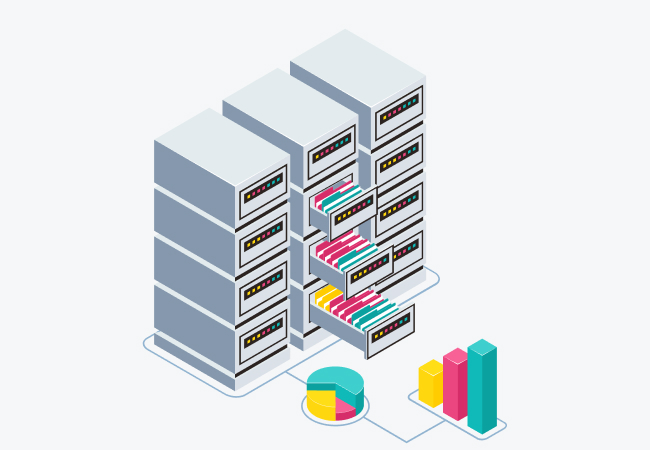
If you’re looking to extract helpful information from the internet in a timely and hassle-free manner, there’s no better way to do this than web scraping. It is the process of automatically extracting data from websites. Web scraping has become an essential tool for businesses, web developers, and data scientists.
Table of Contents
There are many different programming languages that you can use for web scraping, but some languages are better suited for this task than others. In this article, we’ll take a look at the best language for web scraping.
How To Choose the Best Language for Web Scraping

When choosing the best language for web scraping, you need to consider a few factors, including:
- The language’s ability to handle complex websites
- The language’s ease of use
- The availability of libraries and tools for web scraping
- The language’s popularity and community support
All languages have their shortcomings and advantages. At the end of the day, you need to choose the language that is best suited for your specific needs.
5 Best Web Scraping Languages

Here’s a list of some notable programming languages to help you for web scraping: best language.
1. Python
Python is a popular programming language that is known for its ease of use and readability. It has become the go-to language for data science and machine learning tasks. Python also has a large community of users and developers, which means that there are plenty of libraries and tools available for your web scraping needs.
Moreover, Python has several frameworks that make it well-suited for large-scale web scraping projects. One such framework is Scrapy, which is capable of crawling entire websites.
Python will run anywhere you go. It has bindings for almost every operating system in existence. Some features of Python include:
- An interpreter that reads Python programs and produces results
- A large standard library that covers a wide range of tasks, from networking to data scraping
- Powerful development tools, such as an interactive shell and a debugger
The only downside to Python is that it could be potentially overwhelming since it is a fairly comprehensive language.
2. Ruby
Ruby is a versatile programming language that is popular for web development and scripting tasks. It also has a large community of users and developers, and there are plenty of libraries and tools available for web scraping.
One notable Ruby library for web scraping is Mechanize. This library makes it easy to scrape websites in an automated manner. Furthermore, Mechanize can handle complex websites that are often difficult to scrape.
Some notable features of Ruby are:
- Simple HTML CSS selector search
- Easy to learn
- Open-source functionality
The other downside to using Ruby is that it isn’t very flexible. The code you write for this language will run on an interpreter. So, if the target website changes its HTML structure or scripts, your program might break. Moreover, Ruby’s support for multithreading is not as efficient as other languages, which means that it will use more computer resources. Ruby is also slower than many other internet coding languages.
3. Node.js
Node.js is an event-driven JavaScript platform that is popular for developing network applications. It is also a good choice for web scraping, thanks to the availability of libraries and tools.
One popular Node.js library for web scraping is cheerio. This library makes it easy to extract data from HTML documents. It also has several features that make it well-suited for web scraping, such as the ability to handle complex websites and selectors.
Node.js is a cross-platform language that you can use on Windows, Mac, and Linux. It also has a large community of users and developers. Some notable features of Node.js include:
- Asynchronous programming
- A non-blocking I/O model
- An event loop for easy concurrency
- V8 engine for quick and optimized JavaScript execution
The main downside of Node.js is that its large standard library can make your program bloated — some modules might do more than the task at hand. Furthermore, since it is an event-driven framework, it might not be a good fit for small-scale tasks.
4. C++
C++ is a remarkable language for web scraping since it is a low-level systems programming language. With C++, you can use libcurl to fetch URLs and write an HTML parsing library of your own. It’s simpler to scrape for something specific rather than organizing a DOM tree. In this way, you don’t require a library that converts the whole HTML document.
A C++ web crawler can make your task easier as you can select the URLs you want to crawl. It also enables you to scrape data more reliably.
The language has several features that make it well-suited for web scraping tasks, such as:
- Speed and performance
- Low-level control over memory allocation
- A wide range of libraries and tools
The main downside to C++ web scraping is that it is very expensive. Additionally, it’s not the best language for web-related projects since you can use a dynamic language instead.
5. PHP
PHP is considered the best programming language for websites by many enterprises since it is simple and easy to learn. Additionally, there are several libraries and tools available for web scraping.
One popular PHP library for web scraping is called php-web scraping. This library makes it easy to extract data from HTML documents. With PHP, you can scrape videos, photos, and graphics from multiple websites using a cURL library. The same library can also help transfer files through an extensive protocol list, like FTP and HTTP. As a result, you can make a web spider that lets you download pretty much anything from the internet automatically.
The main features of PHP are:
- Familiarity with syntax
- Platform independent
- Error reporting
- Loosely typed language
- Database support
The downside to PHP is that it’s not as fast as other languages.
Give Internet Coding Languages a Go

Now that you know about the top languages used for web scraping, you can find the best website coding language for your needs. These internet coding languages come with a learning curve, which means you’ll have to train your programming teams accordingly.Hopefully, this guide helped you choose the best language for web scraping based on your expertise and skill level. Alternatively, you can use pre-built web scraping proxies, such as dedicated data center proxies from Light Proxies. These dedicated proxies — available in Germany, Brazil, and the U.S. — are set up instantly and offer an impressive uptime to ensure your web scraping tasks run smoothly.






